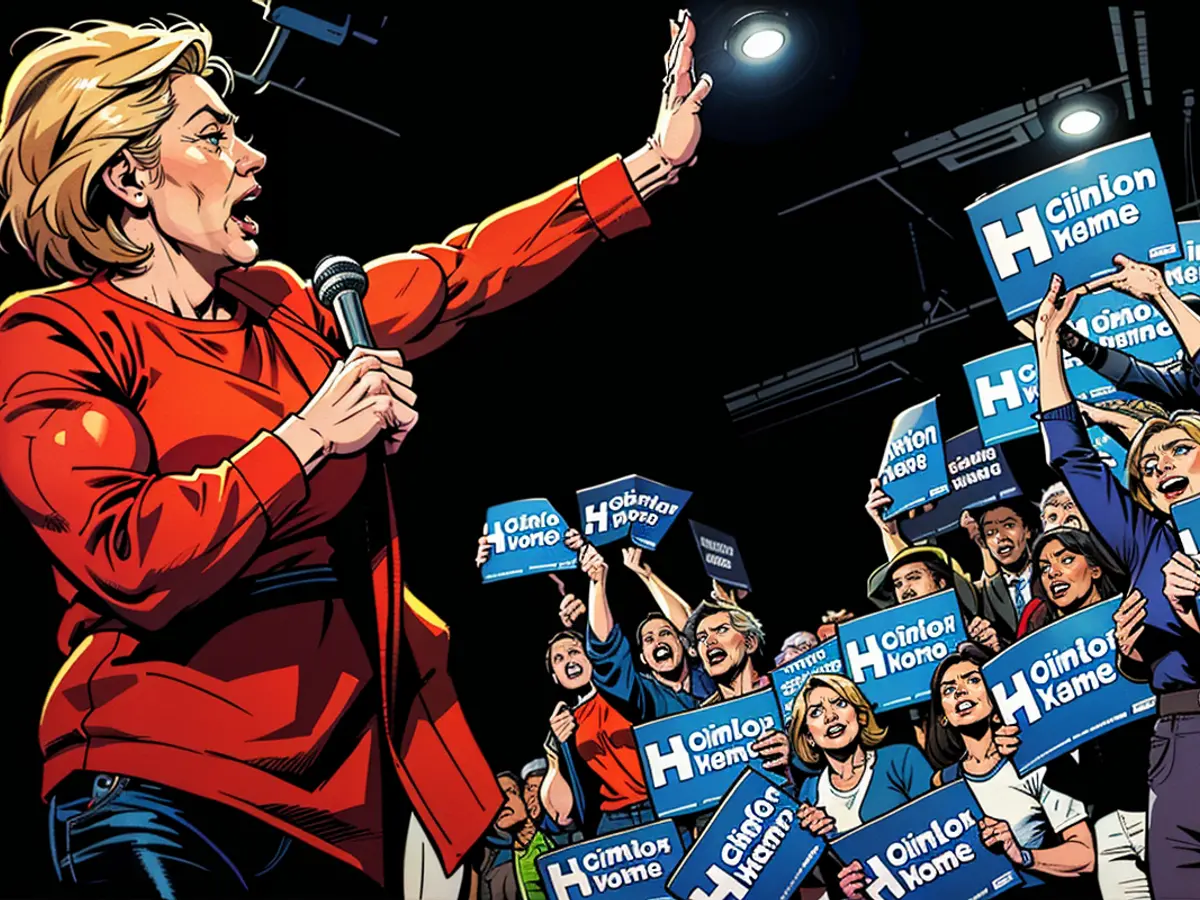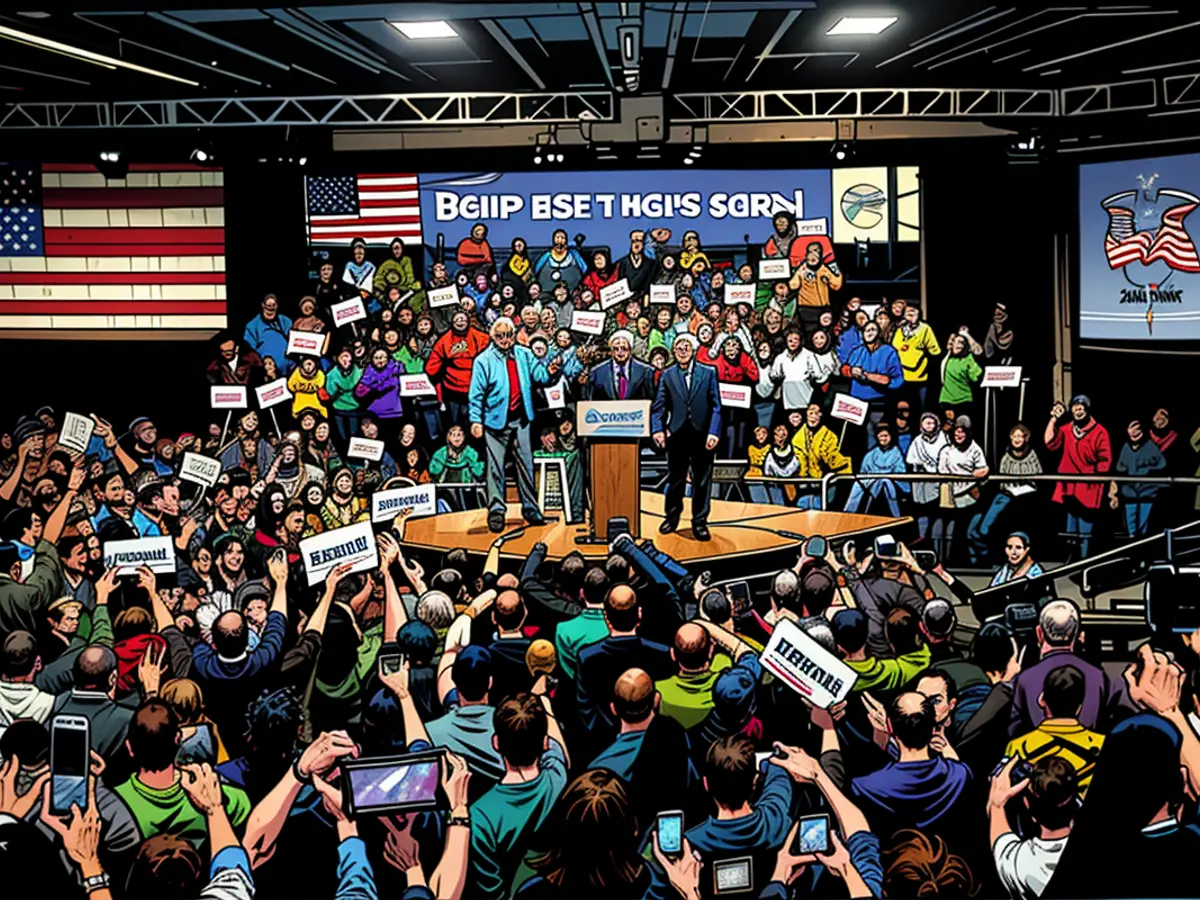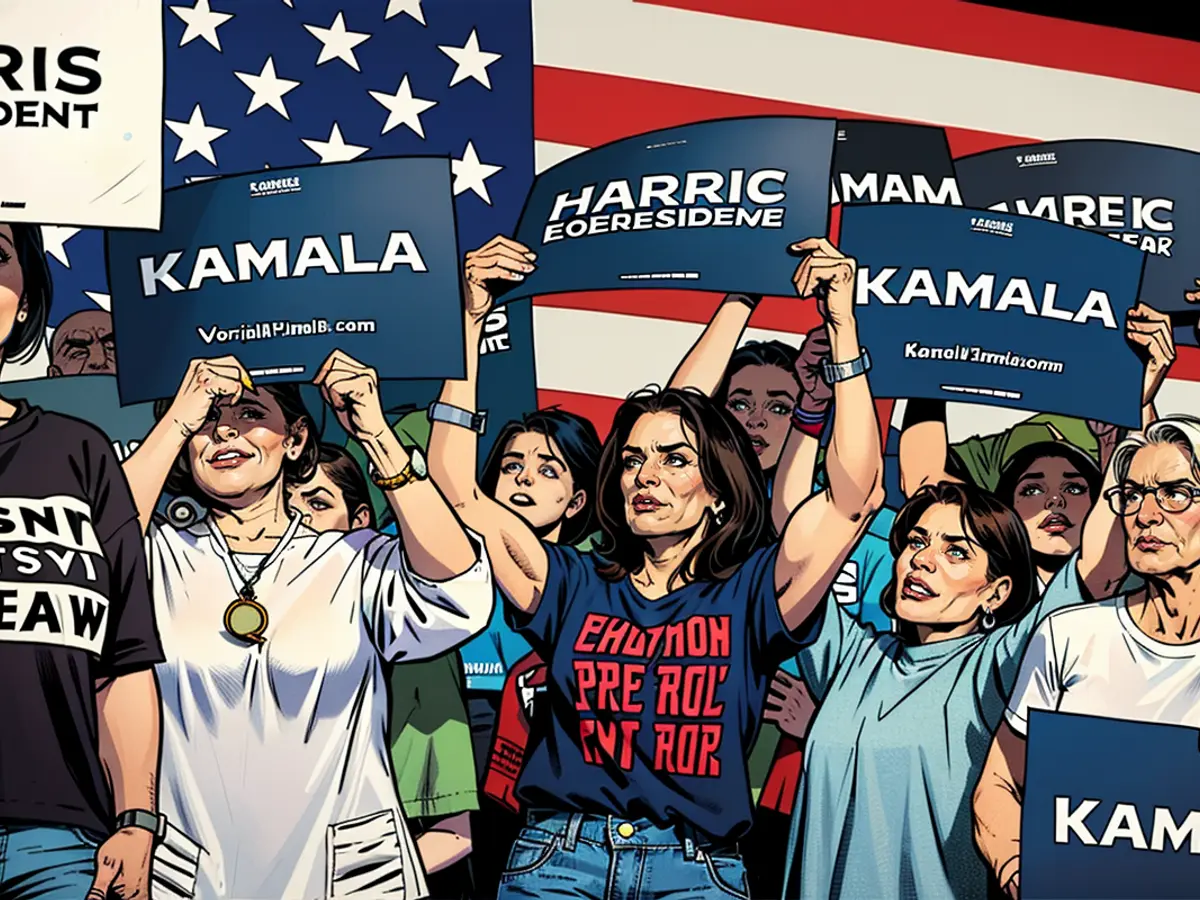How female politicians’ first names can work for and against them, according to science
As Kamala Harris sets her eyes on the presidency, she is using a combination. The vice president is running under the “Harris for President” slogan – a departure from the “Kamala Harris for the People” motto of her 2020 campaign – but is using her first name for social media accounts, including Kamala HQ on X, formerly Twitter.
There’s a solid science behind each choice, experts say. Candidates, in particular women, can use the psychological connotation of a first name to their advantage, to help them seem more likeable and accessible. But this psychology can also serve as a disadvantage, playing off implicit biases to portray a candidate as less qualified or confident.
A balancing act
The science comes together in a “balancing act for women,” according to Dr. Stav Atir, assistant professor in the Management and Human Resources Department at the University of Wisconsin School of Business, who has studied how gender affects the way we talk about professionals.
Atir was lead author of a study that found people were more than twice as likely to describe a male professional by surname in “high-status” fields, including politics. In the medical field, other research indicates that female physicians are more than twice as likely to be called by their first names instead of “doctor,” compared with their male counterparts.
This difference, the study found, can have real-life effects: People perceived those referred to by their surnames as superior and 14% more deserving of a career award, such as raising funding or being selected for a position.

For Harris, Atir says, using “Kamala” could be “potentially costly.” A first-name reference may lead women to be perceived as less deserving and competent. On the other hand, using a first name can make the vice president seem more likeable and approachable, according to Atir, who noted that likeability and competence are both critical qualities in voters’ minds.
To be sure, such undertones may also affect men; critics such as Harris and Trump’s former lawyer Michael Cohen often refer to him by his first name.
The likeability tool
“As a political scientist, I know candidates use language to their advantage. If someone wants to sound more down-to-earth, likeable and familiar, they might just go by their first name,” said Dr. Joseph Uscinski, professor of political science at the University of Miami. “This is what campaigns do. They try to market the best way possible with the best words possible.”
For women, research has suggested that this likeability is often more critical for their evaluations than in evaluations of men. In turn, using a first name could become a more potent tool for female candidates, as likeability significantly influences how they are perceived, Atir said. The use of a last name could even be counterproductive.
“Women in male-dominated professions, like politics, are often assumed to be less competent because of gender stereotypes, and their response is often to emulate what works for men, which can include maybe pushing the last name,” she said. “That often ends up being counterproductive. Women often face backlash or are seen as less likeable when they adopt these traditionally masculine behaviors.”
Behind likeability, gender biases persist
The tool of first names and likeability for women can be a double-edged sword.
Dr. Gail Saltz, clinical associate professor of psychiatry at the NewYork-Presbyterian Hospital and Weill Cornell Medical College, warned that a candidate going by their first name in campaign materials could backfire, especially if that candidate is a woman.
Implicit bias underlies how people choose to address female professionals, she said, describing it as an “unconscious bias against women candidates” such as Harris.
Implicit biases “are unconscious feelings, attitudes, prejudices and stereotypes due to past experiences and influences, and the culture you grew up in,” Saltz said. By using a first name, “you are implying that you feel [Harris] has less expertise, confidence, stature or ability to lead, that she is less qualified for this job than her male counterpart.”
Dropping the title of a female candidate can also reflect internal bias, according to Atir. “Naming conventions reveal our gender stereotypes,” she added.
How people name someone can reflect what they think of that person, Uscinski said.
“When we refer to someone who has a title without the title, that could be somewhat demeaning, as if they don’t deserve that title or position.”
The Clinton case
Uscinski was lead author of a 2010 study about coverage of Hillary Clinton in the 2008 Democratic presidential primaries, which demonstrated that journalists at the time referred to Clinton more informally – either without her title or by her first name – than her male competitors. It also suggested that male broadcasters exhibited gender bias in how they referenced presidential candidates.
Naming practices were just one aspect of what the study authors called the “hostile media environment” Clinton faced. The media scrutinized her menstrual cycle, pantsuits and laugh, and her husband’s infidelity, none of which were issues for her male competitors.
This media coverage can “profoundly affect election outcomes,” the researchers wrote. Specifically, other research from the time showed that such gender biases in coverage disadvantage female candidates.

In 2016, Clinton became the first female presidential nominee of a major US political party. As Harris looks set to join this exclusive club, it might be tempting to compare their journeys. However, things have changed since 2008 when Clinton first sought the Democratic Party’s nomination, Uscinski says, highlighting the complex nature of political analysis and the current election.
“When Clinton was running, norms were still evolving for how to deal with a woman who could potentially be a major party nominee and potentially president. Things have evolved,” he said.
Nonetheless, the underlying gender biases seem to remain, according to Atir.
“The fact that we’re seeing the same pattern now suggests that the specific gender bias doesn’t seem to have shifted,” she said.
Harris on mispronunciation
Harris has not been outspoken on the choice between using her first or last name, but she has commented widely on the mispronunciation of her first name.
During her US Senate run in 2016, a campaign ad focused how to pronounce Kamala, and she has characterized its purposeful mispronunciation as “childish.”
“People ask me how to pronounce it. There are many ways,” Harris also said in a 2017 interview. “If you were asking my grandmother, she’d say ‘come-lah.’ I usually help people pronounce it by saying, ‘Well, just think of a comma and add a “-la” at the end.’”
In 2020, former Georgia Republican Sen. David Perdue referred to the then vice-presidential candidate as “Ka-MAL-a or Kamala, Kamala, Ka-mala, -mala, -mala, I don’t know, whatever,” to laughter from the crowd at a Trump campaign rally.
A spokesperson for Perdue’s campaign later told CNN the former senator “didn’t mean anything by it.”
A similar pattern has arisen in 2024. Republican presidential nominee Donald Trump has repeatedly mispronounced the vice president’s first name, admitting in a speech in West Palm Beach, Florida, on Friday that he “couldn’t care less” if he says it correctly.
At a campaign event in Wisconsin on Saturday, second gentleman Doug Emhoff said, “Mr. Trump, I know you have so much trouble pronouncing her name. Here’s the good news: After the election, you can just call her Madam President.”

Purposeful mispronunciation of “Kamala” can be a tool used by political opponents to “other” her, said Jamal Simmons, Harris’ former communications director.
Such remarks have been characterized as “incredibly racist” by Sabrina Singh, Harris’ press secretary during her 2020 campaign.
“It’s probably done to demean her,” Uscinski added. “Some people may pronounce the name wrong by accident, but other people will do it purposely when they know better.”
According to Atir, “Kamala” is tied to the vice president’s identity, not only as a woman but as a person of color.
“Her first name can be used to weaponize her non-Whiteness by her detractors, but it can also be used to celebrate her identity by her supporters and potentially even her own campaign,” she said.
Science does not predict results
It is not clear what the optimal strategy is for Harris, experts say.
The use of a name in any situation – but specifically in a political campaign – is nuanced, according to Atir and Uscinski.

“People may want to draw the conclusion that surname references are always better, and that’s not necessarily the case,” Atir said. “There isn’t a clear hierarchy of which type of reference is superior to the other here. That really depends on the context and the goals you’re trying to achieve.”
However, Saltz disagreed.
Get CNN Health's weekly newsletter
Sign up here to get The Results Are In with Dr. Sanjay Gupta every Tuesday from the CNN Health team.
“Because of confirmation bias, a clearly identified phenomenon, it’s not good for the candidate, Kamala Harris, to have it continue to go on ‘Kamala,’ ” she said. “For people who have been hearing [‘Kamala’] for a while, when they start saying Harris or Kamala Harris, they might not register it.”
Political strategists have navigated the complexities of name recognition and voter perception in US presidential campaigns. In the current race, Harris holds a unique position as a female candidate, with the science having the potential to both benefit and challenge her.
At the end of the day, it’s about respect, Harris told People magazine in 2020.
“It’s about respect for all that comes with a name. ... Respect the names that people are given, and use those names with respect.”
CNN’s Jacqueline Howard contributed to this report.
Using the provided text, here are two sentences that contain the word 'health':
The science behind naming conventions and their impact on perceptions, such as using a first name instead of a title, is an area of interest in the field of psychology and its impact on health-related evaluations, according to Dr. Gail Saltz.
Research has suggested that for female candidates, likeability is often more critical for their evaluations than in evaluations of men, which can have implications for their health and well-being during a campaign, as likeability significantly influences how they are perceived.








